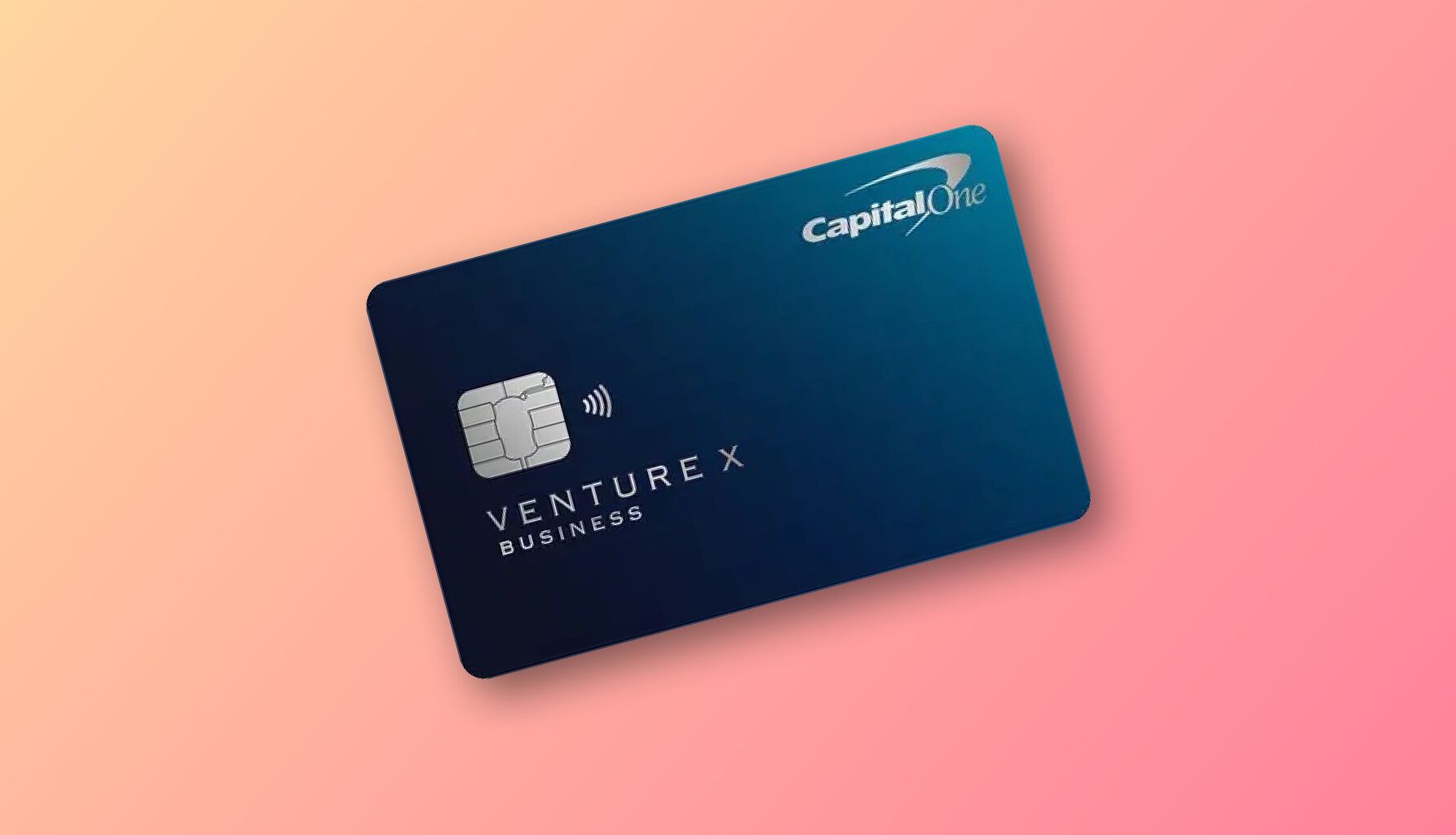Home>Finance>What Happens When You Pay Below Your Monthly Minimum Payment On Capital One Credit Card


Finance
What Happens When You Pay Below Your Monthly Minimum Payment On Capital One Credit Card
Published: February 27, 2024
Learn the consequences of paying below your monthly minimum on a Capital One credit card. Understand the impact on your finances and credit score. Take control of your financial health.
(Many of the links in this article redirect to a specific reviewed product. Your purchase of these products through affiliate links helps to generate commission for LiveWell, at no extra cost. Learn more)
Table of Contents
Introduction
Welcome to the world of credit cards, where the convenience of making purchases often comes with complex terms and conditions. Capital One, a prominent player in the credit card industry, offers a range of cards with varying features and benefits. One crucial aspect of managing a Capital One credit card is ensuring that you meet the minimum monthly payment requirement. Failing to do so can have significant repercussions on your financial well-being, including potential damage to your credit score and the accumulation of substantial interest and fees.
In this article, we will delve into the consequences of paying below the minimum monthly payment on your Capital One credit card. Understanding these implications is essential for responsible financial management and can help you navigate the intricacies of credit card usage more effectively. We will explore the impact on your credit score, the accumulation of interest and fees, as well as potential legal actions that may arise from non-compliance with payment terms. Additionally, we will provide practical tips for managing credit card payments to help you avoid these pitfalls and maintain a healthy financial standing.
Overview of Minimum Payments
When you hold a Capital One credit card, you are required to make a minimum payment each month. This minimum payment is a small percentage of your total balance, typically around 1%-3%, with a minimum dollar amount specified in your cardholder agreement. It is important to note that paying only the minimum amount due allows you to maintain your account in good standing, preventing late fees and adverse effects on your credit report. However, it also means that you will incur interest on the remaining balance, ultimately extending the time it takes to pay off the debt.
Understanding the minimum payment is crucial, as it represents the minimum amount you must pay to avoid penalties and maintain a positive credit history. While paying the minimum can provide temporary relief, it is not a long-term solution for managing credit card debt. Striving to pay more than the minimum whenever possible can help you reduce your overall interest costs and expedite the process of becoming debt-free.
It’s important to review your cardholder agreement to determine the specific minimum payment requirements for your Capital One credit card. By familiarizing yourself with this information, you can make informed decisions about your monthly payments and take proactive steps to manage your credit card debt responsibly.
Consequences of Paying Below the Minimum
Choosing to pay below the minimum required amount on your Capital One credit card can have serious financial implications. While it may provide temporary relief for your immediate cash flow, it can lead to a cascade of negative consequences that impact your overall financial health.
First and foremost, failing to meet the minimum payment requirement can result in late fees and penalties, adding to the financial burden. These fees can further exacerbate your debt and make it more challenging to regain control of your finances. Additionally, missed payments can trigger a higher interest rate, causing your outstanding balance to grow at a faster pace.
Beyond the immediate financial impact, paying below the minimum can also tarnish your credit history. Your payment behavior is a significant factor in determining your credit score, and consistently failing to meet the minimum payment can lead to a drop in your score. A lower credit score can affect your ability to secure favorable loan terms, obtain new lines of credit, or even impact your housing and employment opportunities.
Furthermore, paying below the minimum payment can lead to strained relationships with your creditors. It may result in increased communication from collection agencies, potentially leading to stressful interactions and a negative impact on your mental well-being.
It’s essential to recognize that the consequences of paying below the minimum extend beyond immediate financial penalties. By understanding the broader implications, you can make informed decisions about managing your credit card payments and work towards maintaining a healthy financial profile.
Impact on Credit Score
One of the most significant repercussions of paying below the minimum on your Capital One credit card is the adverse impact on your credit score. Your payment history is a crucial factor in determining your credit score, comprising approximately 35% of the FICO scoring model. When you consistently fail to meet the minimum payment requirement, it sends a negative signal to credit reporting agencies, resulting in a lower credit score.
A lower credit score can affect various aspects of your financial life. It may lead to higher interest rates on future credit products, making borrowing more expensive. Additionally, prospective landlords and employers often review credit scores as part of their evaluation process, potentially impacting your housing and employment opportunities.
Furthermore, a diminished credit score can limit your financial flexibility and access to favorable credit terms. It may hinder your ability to secure mortgages, auto loans, or personal loans, and could result in higher insurance premiums. Overall, a lower credit score can significantly impede your financial well-being and limit your options for future financial endeavors.
Understanding the direct correlation between your credit score and payment behavior can motivate you to prioritize meeting the minimum payment requirements on your Capital One credit card. By consistently fulfilling your obligations, you can safeguard your credit score and maintain a solid foundation for your financial future.
Accumulation of Interest and Fees
When you pay below the minimum on your Capital One credit card, you not only incur late fees but also trigger the accumulation of interest on the remaining balance. Credit cards, including those issued by Capital One, apply interest to any unpaid portion of your balance after the payment due date. This interest accrual can quickly compound, leading to a significant increase in the overall amount you owe.
Furthermore, the higher interest rate associated with missed payments or paying below the minimum can further exacerbate the situation. Capital One, like many credit card issuers, reserves the right to increase your interest rate if you fail to meet the minimum payment requirements. This elevated interest rate can substantially inflate the cost of carrying a balance, making it more challenging to pay off the debt.
It’s important to recognize that the accumulation of interest and fees can create a cycle of debt that becomes increasingly difficult to break free from. As the outstanding balance grows due to accrued interest, it can lead to a prolonged repayment period and higher overall interest costs.
By understanding the implications of allowing interest and fees to accumulate, you can make informed decisions about managing your credit card payments. Prioritizing meeting the minimum payment and striving to pay more than the minimum whenever possible can help you mitigate the impact of interest and fees, ultimately working towards reducing your overall debt burden.
Potential Legal Actions
When you consistently fail to meet the minimum payment requirements on your Capital One credit card, you may face potential legal actions from the credit card issuer. While missing a single payment typically does not result in immediate legal repercussions, persistent non-compliance can lead to more severe consequences.
Capital One, like other credit card companies, has the right to take legal action to recover the outstanding debt. This may involve the initiation of collections proceedings, which can result in increased communication from collection agencies and potentially escalate to legal actions such as a lawsuit. If legal action is pursued, it can lead to court judgments, wage garnishment, or liens on personal property.
Engaging in legal proceedings can be a stressful and burdensome experience, potentially leading to additional financial strain and emotional hardship. It’s essential to recognize that avoiding the minimum payment requirements can escalate the situation, increasing the likelihood of legal actions being taken against you.
By understanding the potential legal ramifications of failing to meet your credit card payment obligations, you can take proactive steps to address any financial challenges. Open communication with your creditor, seeking assistance from credit counseling services, and exploring debt repayment options can help you navigate the situation and work towards resolving the outstanding debt without facing legal repercussions.
Tips for Managing Credit Card Payments
Effectively managing your credit card payments, especially with a Capital One credit card, is crucial for maintaining financial stability and avoiding the pitfalls associated with paying below the minimum. Here are some valuable tips to help you navigate the complexities of credit card payments:
- Understand Your Card Terms: Familiarize yourself with the terms and conditions of your Capital One credit card, including the minimum payment requirements, interest rates, and potential fees. This knowledge empowers you to make informed decisions about your payments and overall credit card usage.
- Create a Payment Schedule: Establish a consistent payment schedule to ensure that you meet the minimum payment requirement each month. Setting up automatic payments or utilizing calendar reminders can help you stay on track and avoid missed payments.
- Pay More Than the Minimum: Whenever possible, strive to pay more than the minimum required amount. By doing so, you can reduce the overall interest costs and expedite the process of paying off your credit card debt.
- Monitor Your Spending: Keep a close eye on your credit card spending to avoid accumulating a balance that exceeds your ability to repay. Responsible spending habits can prevent the need to pay below the minimum due to financial constraints.
- Seek Assistance if Needed: If you encounter financial challenges that impact your ability to meet your credit card payments, consider reaching out to your card issuer. They may offer hardship programs or alternative payment arrangements to help you navigate temporary financial difficulties.
- Explore Debt Repayment Strategies: If you find yourself struggling with credit card debt, explore debt repayment strategies such as debt consolidation or working with a reputable credit counseling service. These options can provide a structured approach to managing and reducing your debt burden.
By implementing these tips and adopting responsible financial habits, you can effectively manage your credit card payments, mitigate the risk of paying below the minimum, and work towards achieving a healthier financial outlook.
Conclusion
Managing your Capital One credit card payments is a fundamental aspect of maintaining financial well-being and a positive credit standing. Failing to meet the minimum payment requirements can lead to a host of negative consequences, including adverse effects on your credit score, the accumulation of interest and fees, and potential legal actions from the credit card issuer.
Understanding the implications of paying below the minimum empowers you to take proactive steps to manage your credit card payments effectively. By familiarizing yourself with your card terms, creating a payment schedule, and monitoring your spending, you can mitigate the risk of falling into the cycle of paying below the minimum.
It’s crucial to prioritize responsible financial habits, such as paying more than the minimum whenever possible and seeking assistance if you encounter financial challenges. By adopting these strategies and exploring debt repayment options if needed, you can navigate credit card payments with confidence and work towards achieving a healthier financial future.
Ultimately, staying informed about the potential consequences of paying below the minimum on your Capital One credit card empowers you to make informed decisions, manage your payments effectively, and safeguard your financial well-being.














